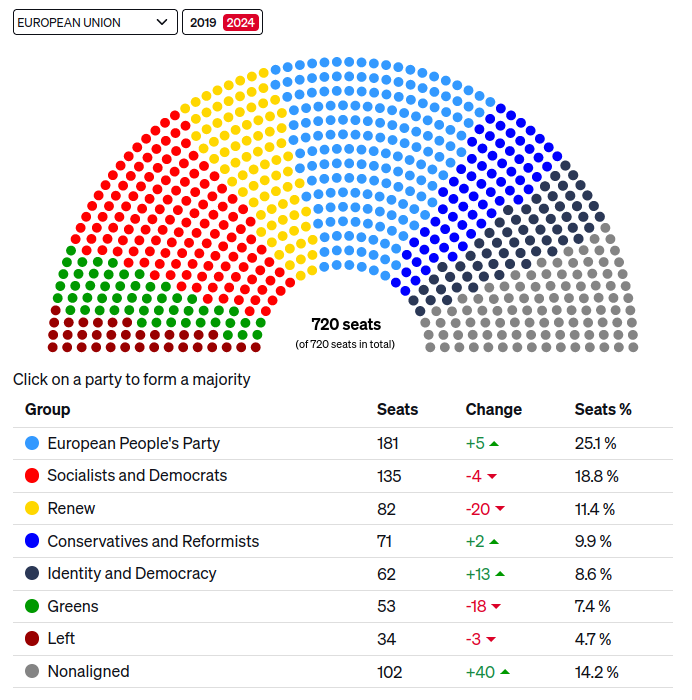this post was submitted on 09 Jun 2024
475 points (99.0% liked)
Europe
8324 readers
1 users here now
News/Interesting Stories/Beautiful Pictures from Europe 🇪🇺
(Current banner: Thunder mountain, Germany, 🇩🇪 ) Feel free to post submissions for banner pictures
Rules
(This list is obviously incomplete, but it will get expanded when necessary)
- Be nice to each other (e.g. No direct insults against each other);
- No racism, antisemitism, dehumanisation of minorities or glorification of National Socialism allowed;
- No posts linking to mis-information funded by foreign states or billionaires.
Also check out [email protected]
founded 2 years ago
MODERATORS
you are viewing a single comment's thread
view the rest of the comments
view the rest of the comments

Traditionally, the EU has been governed by an informal coalition of the two largest groups/parties, centre-right EPP and centre-left S&D, both being pro-EU. After the last election where they underperformed, they were joined by the third largest group, centrist, pro-EU Renew.
This election, pro-EU groups collectively have lost a lot of seats while right-wing EU-sceptic groups gained seats. The most radical of these groups, ID, made the biggest gains. This will make coalition building and therefore governing way more complicated.
European parties are alliances of national parties from various member states. Those representatives elected to the European Parliament for the national parties form so called groups. Typically, these groups correspond to the European parties. Usually, it makes more sense to talk about the groups rather than the parties.